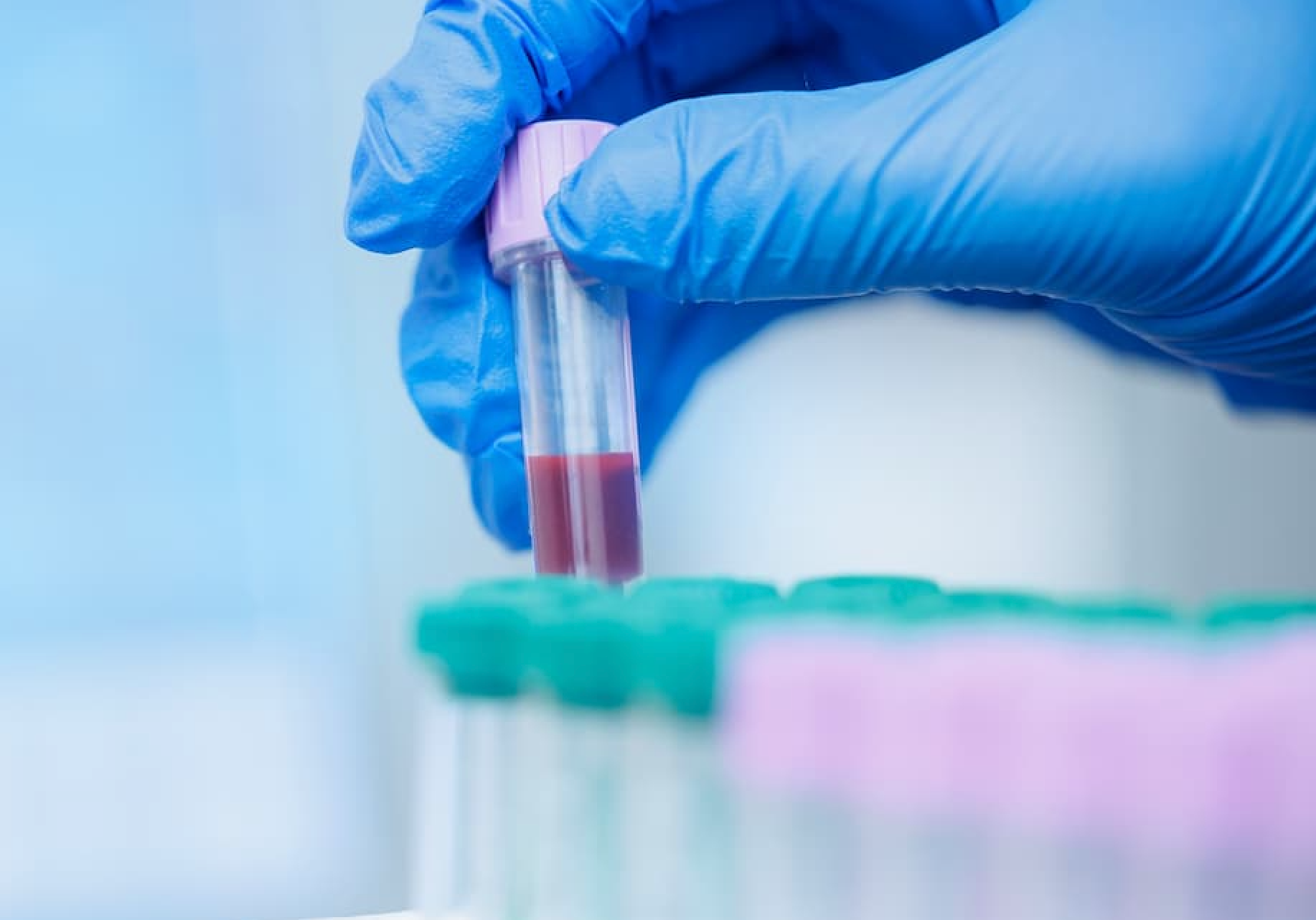
Ten Tips for Navigating the Experience of Genetic Testing
Living with Lynch syndrome, Tiffany offers hard-earned advice on navigating genetic testing, emotional impact and life as a “previvor.”
By
Tiffany Graham Charkosky| Published on November 12, 2025
6 min read
The world of genetics offers us increasingly detailed information about our health. Diseases ranging from cancer to strokes to neurological symptoms are being understood through genetic research. But navigating what a particular genetic diagnosis could mean for you and the people you love isn’t always straightforward.
A doctor or relative might suggest you consider genetic testing for a number of different reasons. Genetic testing allows patients to seek preventive treatment or participate in scans or tests allowing for early detection of a disease.
I’ve experienced the universe of genetic testing and its emotional and physical aftermath firsthand after discovering that I inherited Lynch syndrome, a genetic mutation that killed my mom, uncle and grandfather. Thirteen years later, I’ve released a memoir about my experience through the world of genetic testing called “Living Proof: How Love Defied Genetic Legacy.” While I can’t change what’s written in my DNA or yours, I can share what I’ve learned on my journey and help offer some guidance for making the most of your own:
- In some diseases, such as cancer, the treatment protocols for patients who have a genetic condition are different from those who have developed the cancer spontaneously. A doctor may recommend a patient get genetic testing to help them be as targeted as possible in treating an illness.
- If you’re not currently sick when you’re considering genetic testing and you don’t have life insurance — or you’d like to increase your coverage — secure your new policy before testing. As genetic information becomes more mainstream, many life insurance carriers require applicants to disclose mutations. I got a 30-year-term policy before undergoing genetic testing. However, when I applied to up my coverage several years (and two children) later, I was rejected based on being a carrier for Lynch syndrome.
- Before genetic testing, candidates should meet with a genetic counselor. These are licensed professionals who guide patients through the process of genetic testing. Genetic counselors can determine which diseases, disorders or mutations to test for and help make plans for what to do after testing is complete.
- Genetic counselors will review family history with patients, so the more information you have about your relatives, the more targeted genetic testing can be.
- Some patients will qualify for a full genomic panel, which will test for all known genetic disorders. These are usually offered when other, more targeted tests are inconclusive, they have a combination of symptoms suggesting multiple diseases or their condition is rapidly deteriorating.
- Genetic counselors are not therapeutic counselors. For many people, undergoing genetic testing can be an emotional experience. Having a therapist or psychologist provide support during and after testing can provide tools for managing stress, anxiety or other challenging feelings that arise through this process. Don’t be afraid to ask for this support!
- If you test positive for one or more genetic diseases but haven’t been sick, then you are a previvor. Previvorship is a lifelong journey. There will be different approaches for you to consider at different ages, so it’s important to continue managing your care in the same way you would manage any other condition.
- Depending on your specific genetic mutation, you will likely spend more resources (time, money, emotions) managing your care than many others. If you have a flexible spending account, make sure to plan ahead and add as many known expenses as possible.
- If you haven’t had children but want them, there are resources available to help ensure you do not pass on your genetic mutation, such as in vitro fertilization (IVF) and embryo screening. Not everyone chooses these interventions for a number of reasons: access to medical services, cost, religious beliefs, etc. Knowing your options can help you make the best decision for your own life.
- Depending on your gender, you may have different recommended screenings and/or surgeries. For example, the genetic mutation I carry involves colon cancer and a number of other cancers related to the gastric system, but for women, it also impacts the uterus and ovaries. People with a BRCA1 or BRCA2 mutation may assume that if they’re male, they cannot get breast cancer or pass it on. But men can get breast cancer, and a father is just as likely to pass on this mutation as a mother.
If this all sounds like a lot, that’s because it is. So, I’ll end with repeating my most crucial suggestion: don’t try to DIY your genetic testing journey. You can find licensed genetic counselors by visiting the National Society of Genetic Counselors.
Tiffany Graham Charkosky is an author living in Northeast Ohio. Her writing has been featured or is forthcoming in Oprah Daily, LitHub, Electric Literature, MUTHA Magazine and others. Her memoir, “Living Proof: How Love Defied Genetic Legacy,” was released in October 2025.

